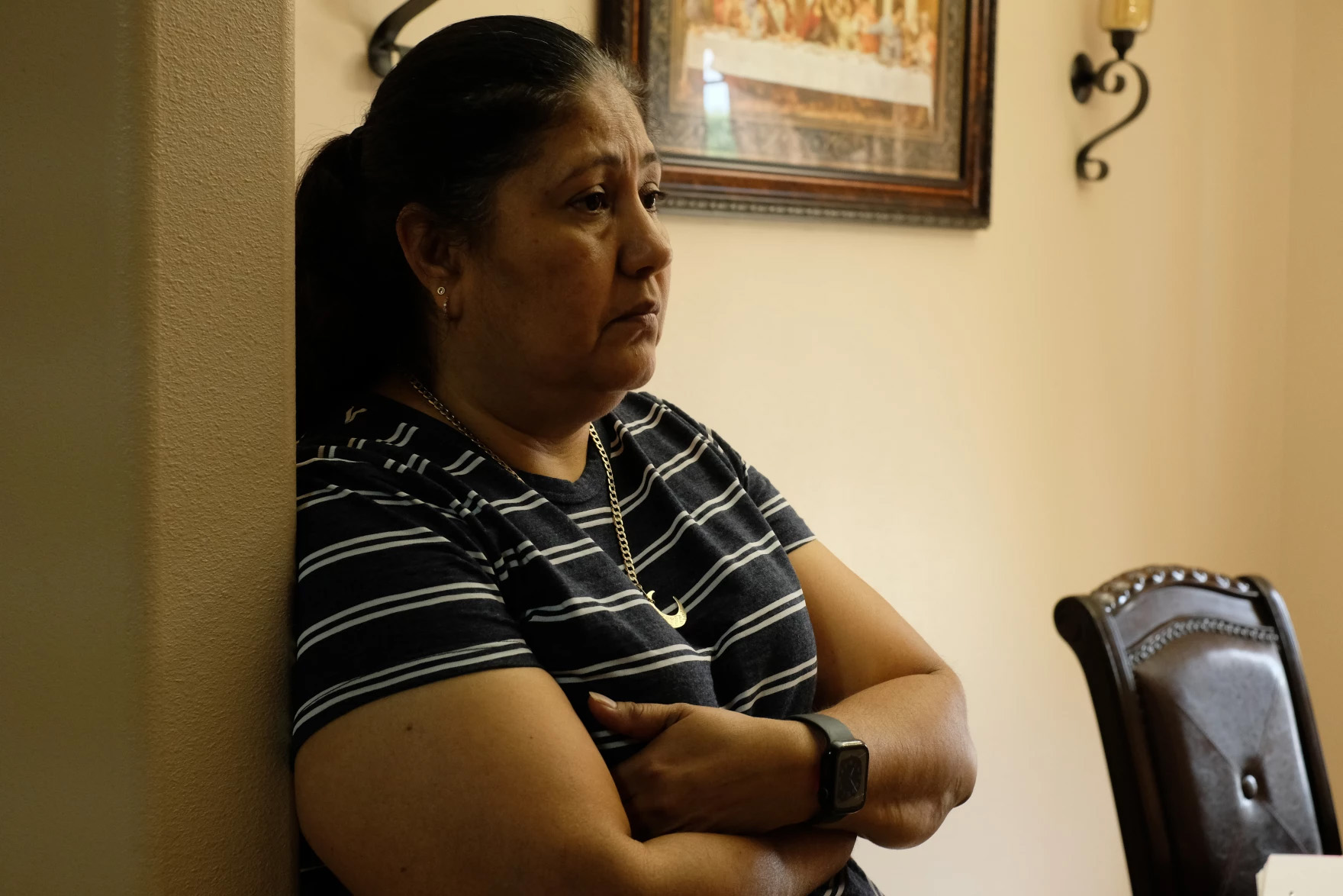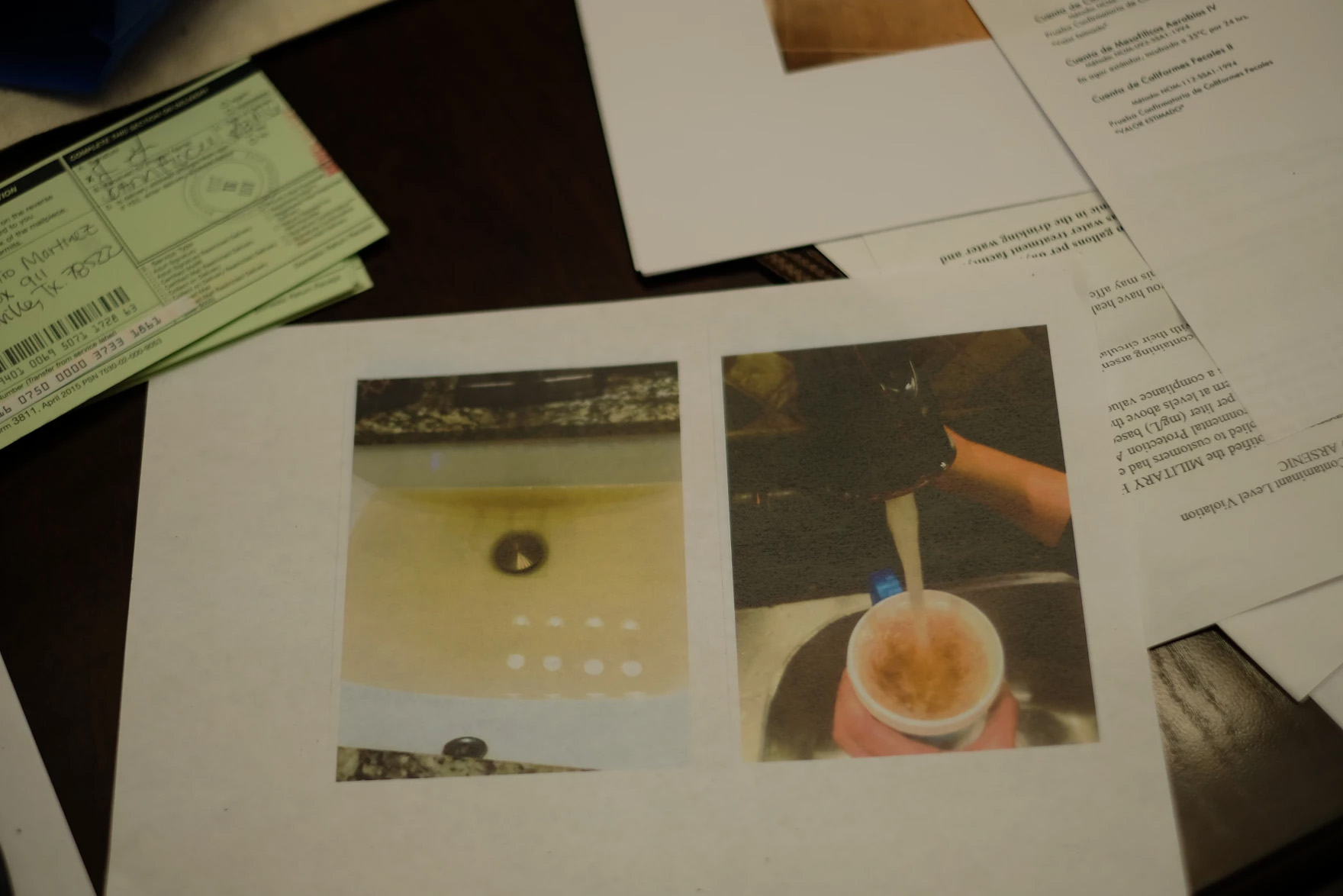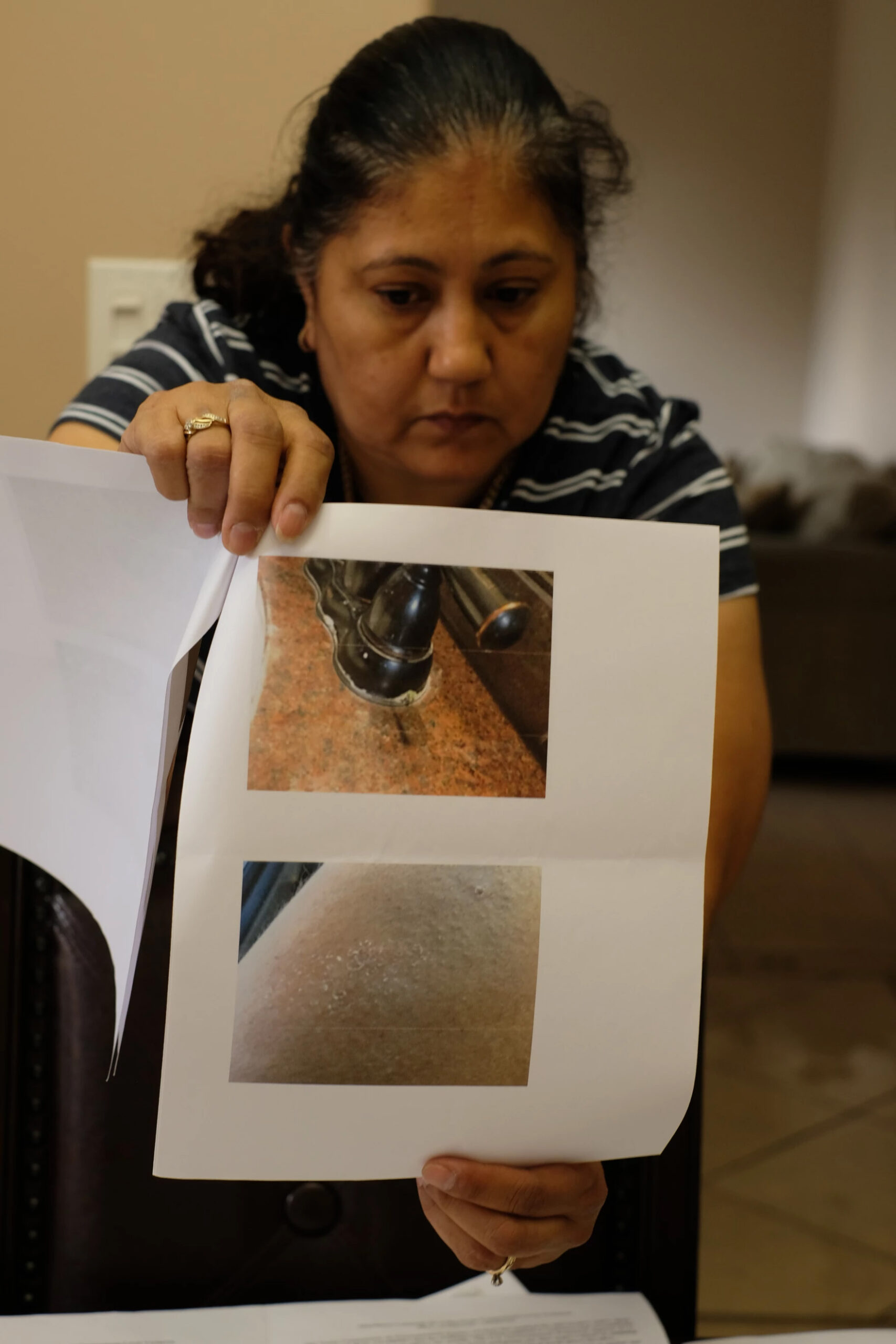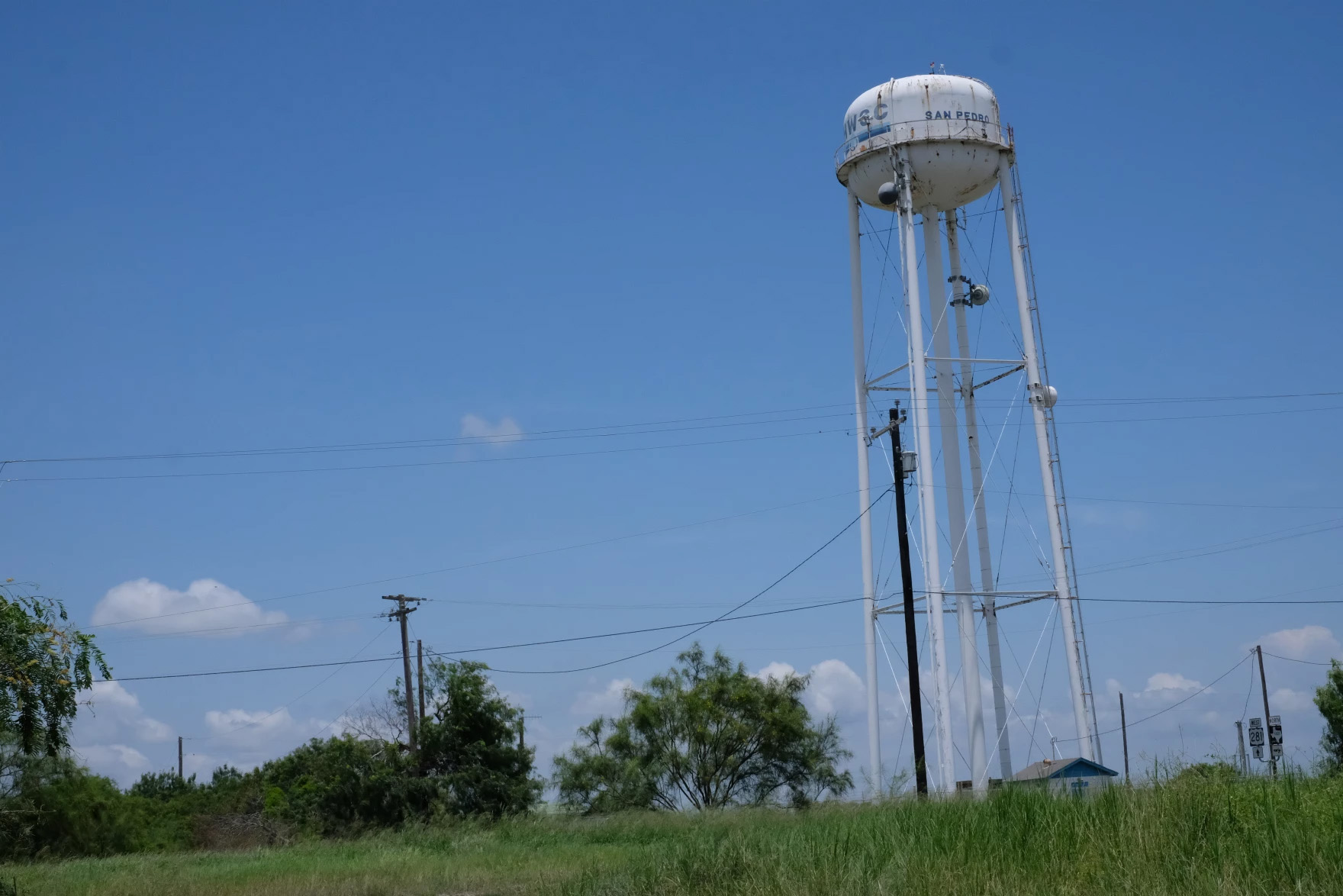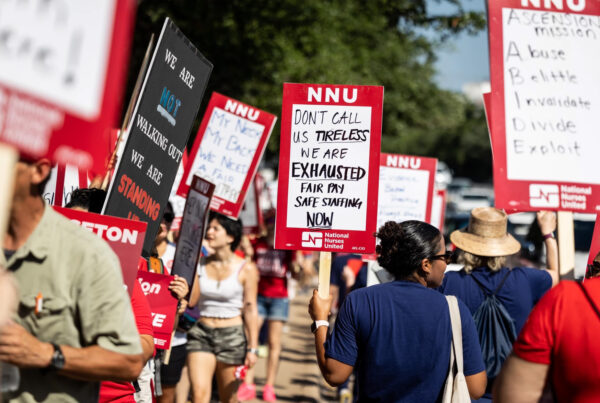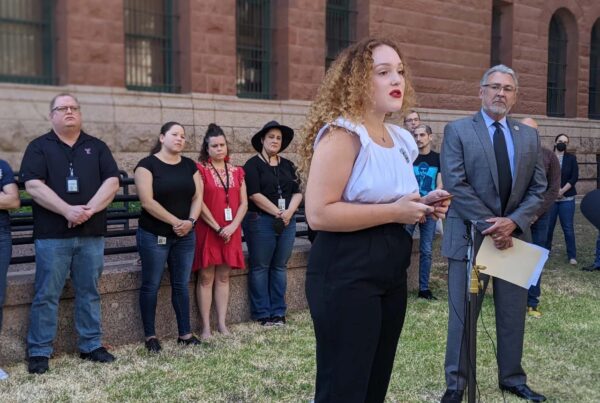From Texas Public Radio:
Araceli Palomino and other colonia residents waited to enter the board meeting of their water supplier, Military Highway Water Supply Corporation. They were tired of having to deal with the corporation’s foul and even toxic drinking water.
When Palomino finally entered the conference room, the mood was tense. When she spoke during the public comment section, she directed her ire at the board members.
“I don’t think you want to pay $200 a month for dirty water,” she told them, “for dirty water that is damaging your family.”
Customers said the company routinely ignored their pleas for help while they paid up to three times more than that of neighboring public water systems, including rural ones.
They also said that Military Highway Water Supply’s poor water quality has even ushered in a predatory market that profits off the problem, in the form of water softener and filtration companies.
“It’s getting to this point that it’s not only affecting economically wise but it’s also affecting our health, our families,” Palomino told TPR in her home. “We want clean water. We want what we’re paying for.”
In 1973, Military Highway Water Supply Corporation became the first big rural water supply corporation dedicated to expanding water delivery to the colonias.
Palomino and her family live in a colonia called San Pedro, where the water comes from the company’s largest water system, Las Rusias. The system serves approximately 20,000 people. More than a third of them still live in colonias.
During the almost 15 years the Palominos have lived in San Pedro, the Texas Commission on Environmental Quality (TCEQ) has issued 82 violations, including multiple instances of illegal levels of carcinogens in the tap water.
Palomino has spent years trying to get attention on the issue.
“We talked to the mayors,” Palomino said. “We went all the way to the senators, the governor. But nobody seems to care.”
Now, Palomino and more than 450 other plaintiffs have turned to the courts.
In a lawsuit, they alleged personal injuries and even deaths from exposure to many toxic products and substances in the Las Rusias system.


